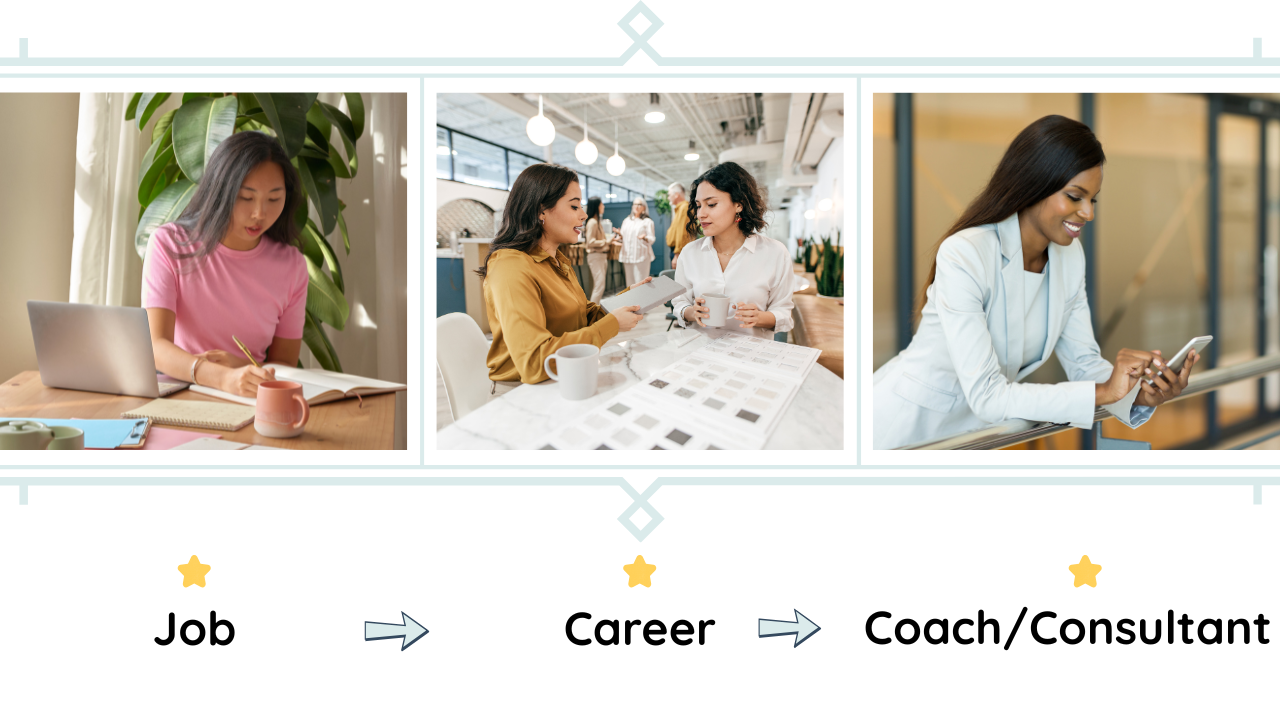*Feeling Stuck at Work? Here's Why Coaching Could Be Your Way Out...

From Career to Consulting: Turning Expertise into Opportunity
Step 1: Job
Most professionals begin their working life with a single goal in mind: get a job. In those early stages, the focus is on gaining experience, developing skills, and finding a reliable place to grow. A job provides structure and the opportunity to learn from others. It's the foundation on which everything else is built.
Step 2: Career
As time passes, that job often evolves into a career. You begin to make strategic decisions about where you want to go, what industry you want to shape, and how you define success. You become more confident in your abilities and start making contributions that have a visible impact. A career demands more than just skill. It requires initiative, resilience, and purpose.
Step 3: Coach/Consultant
Eventually, with enough time, reflection, and repetition, something deeper happens. You move from being capable to being trusted. You develop a reputation not just for doing the work, but for doing it well and doing it consistently. Others begin seeking your input. You're asked to mentor new employees, lead complex projects, and fix what others cannot.
At this point, you're no longer just building a career. You've become an expert.
This is when consulting becomes not only possible but practical.
Why and When Consulting Makes Sense
Consulting isn't simply a career change. It's a shift in ownership. When you consult, you're no longer offering your skills in service of someone else’s business.
You're offering your perspective, your process, and your ability to solve problems as the product itself.
This transition works best when you already have a strong foundation of knowledge, experience, and relationships. You're likely already helping others informally by answering questions, reviewing plans, or providing recommendations, all without thinking much of it.
These moments are not just favors. They're signals. They suggest that your insights hold value. Consulting allows you to turn that value into something structured and sustainable.
Indicators That You're Ready to Consult or Coach
There is no single formula, but several signs suggest it may be time to consider this path:
-
You're frequently asked for advice or guidance in your area of expertise.
-
You see patterns and solutions more quickly than others do.
-
You feel ready to work with more autonomy and choose the projects you take on.
-
You're motivated to create something of your own, even if you remain passionate about your field.
If these statements feel familiar, it's likely that you've already outgrown the role you were hired to do. Consulting offers a next step that respects your experience and gives you greater control over your time, income, and direction.
How to Build a Business Around What You Know
Becoming a consultant doesn't mean you need to figure it all out at once. It starts with identifying a problem you're uniquely qualified to solve and then packaging that solution in a way that others can access and benefit from.
👉This may take the form of one-on-one advisory work, project-based contracts, group training, or digital products. The format can evolve, but the value remains centered on your expertise.
Consulting is starting from where you are and building something new with what you already know.
Jobs give us a beginning. Careers help us grow. Expertise offers us a choice.
If you've spent years becoming excellent at what you do, there may come a point when the most strategic move is not to keep climbing, but to pivot. Consulting is not the right path for everyone, but for those who are ready, it can be the most rewarding step in a professional journey.
Now may be the time to ask not where your next job will take you, but where your knowledge can take others.


